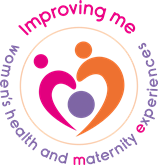Menopause
Menopause
October brings a focus on Menopause, something which all women will experience during their lifetime. It’s important that women have access to accurate information to enable them to make an informed decision about the best way to manage their menopause and where to access NHS services.

Here are our ‘top tips’ for menopause:
- WHEN we eat & exercise matters
- WHAT we eat and the type of exercise matters
- FOCUS on BUILDING MUSCLE and worry less about ‘OVER FAT’
- LOOK AFTER your gut bugs
- REMEMBER the ‘sunshine vitamin’
- PRIORITISE time for healing, self-care and your ‘tribe’

Do you know the symptoms of menopause? No, it isn’t just ‘hot flushes’.
Look below to see what symptoms of menopause may include:
Physical
- Hot Flushes
- Night Sweats
- Change in periods
- Poor sleep
- Tiredness
- Loss of energy
- Headaches
- General aches & pains
- Dry skin/itchiness
- Hair loss
- Formication
- Palpitations
Psychological
- Feeling tearful/emotional
- Feeling unhappy/low in mood
- Feeling tense or nervous
- Feeling irritable
- Having attacks of anxiety or panic
- Loss of interest in most things
- Genital and bladder
- Alteration in Bladder Function
- Vaginal dryness/soreness/itch
- Soreness or pain on sex
- Reduction or lack of libido
- Difficulty achieving orgasm
Cognitive function
- Loss of memory
- Loss of function
- Inability to cope

Why do women have a menopause?
- No more eggs left in the ovaries
- As ovulation gets less frequent = irregular periods
- Reduced oestrogen = menopausal symptoms
If you need advice about Menopause, speak to a health care professional.
- A GP, nurse or pharmacist can give you advice and help with your menopause or perimenopause symptoms.
- Further information can be fund on the NHS website: https://www.nhs.uk/conditions/menopause
- Menopause Matters: https://www.menopausematters.co.uk
- (magazine and website, including advice for the men in your life!)
- International Menopause Society: imsociety.org
- Women’s Health Concern (WHC), the patient arm of the British Menopause Society, provides a confidential, independent service to advise, inform and reassure women about their gynaecological, sexual and post reproductive health: https://www.womens-health-concern.org
